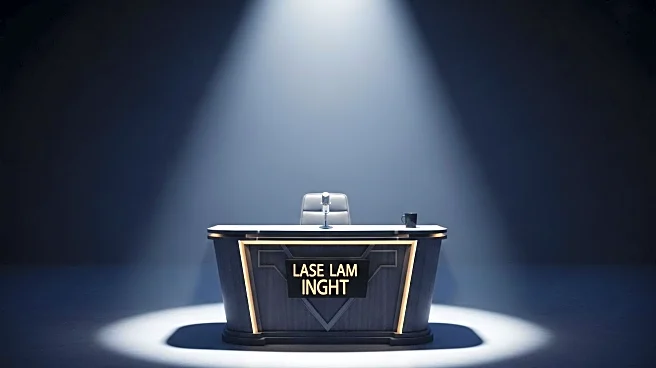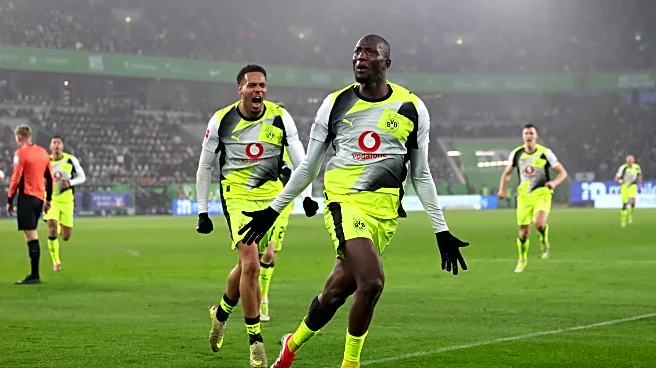What's Happening?
ABC has announced that 'Jimmy Kimmel Live!' will return to air on Tuesday night after a suspension due to controversial remarks made by host Jimmy Kimmel. The suspension followed Kimmel's comments regarding the shooting death of conservative activist Charlie Kirk, which sparked backlash from conservative groups and led to protests. The Walt Disney Co., which owns ABC, decided to suspend the show to avoid further inflaming tensions. After several days of discussions with Kimmel, the network decided to resume the show. The suspension had placed Disney executives in the midst of a national debate over free speech, with protests occurring outside the El Capitan Theatre where the show is taped.
Why It's Important?
The suspension and subsequent return of 'Jimmy Kimmel Live!' highlight the ongoing tensions between media companies and political groups over free speech and content regulation. The incident underscores the challenges faced by entertainment companies in navigating politically charged environments while maintaining their programming. The backlash from Kimmel's remarks and the protests against his suspension reflect broader societal divisions and the impact of media personalities on public discourse. The decision to bring back the show may affect Disney's relationship with its audience, particularly those who canceled their Disney+ subscriptions in protest.
What's Next?
As 'Jimmy Kimmel Live!' returns, Disney and ABC may face continued scrutiny from both supporters and critics of Kimmel's remarks. The network will likely need to balance its programming decisions with the potential for political backlash. The situation may prompt further discussions within the entertainment industry about the role of media in political debates and the limits of free speech. Stakeholders, including political leaders and media executives, may continue to weigh in on the implications of Kimmel's comments and the network's response.
Beyond the Headlines
The controversy surrounding 'Jimmy Kimmel Live!' raises questions about the ethical responsibilities of media companies in moderating content and the potential consequences of censorship. The incident may lead to long-term shifts in how entertainment companies approach politically sensitive topics and manage public relations. It also highlights the cultural dimensions of media influence and the power of television personalities in shaping public opinion.










